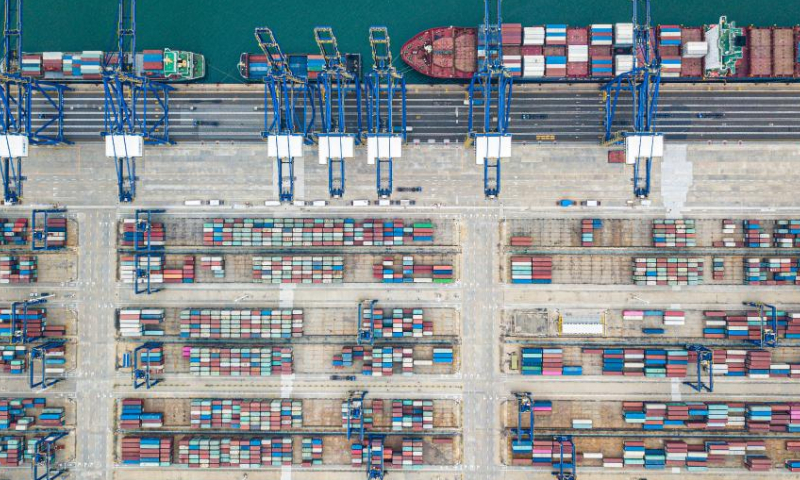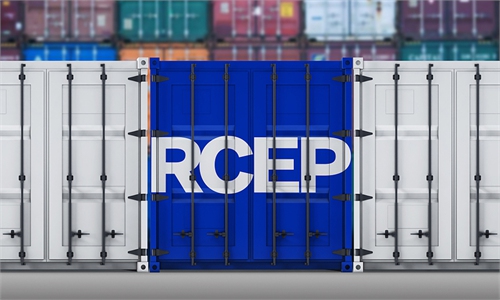Western reports alleging epidemic in China to delay global recovery are false, with ulterior motives: ministry

This aerial photo taken on Nov. 5, 2022 shows a view of the Yangpu international container terminal in the Yangpu Economic Development Zone, south China's Hainan Province. According to Haikou Customs statistics, in the first 11 months of 2022, the total import and export value of Hainan's goods trade was 182.63 billion yuan (about 26.25 billion U.S. dollars), an increase of 40.1% year-on-year. (Xinhua/Pu Xiaoxu)
Some western media reports alleging that the epidemic in China will affect the stability of international industrial chain and drag down the recovery of the world economy are out of ulterior motives, which deviate from the real situation, Wang Wenbin, a spokesperson for China's Foreign Ministry, told a regular press conference on Tuesday.
China's epidemic prevention and control policies not only protect people's lives and health to the greatest extent, but also minimize the impact of the epidemic on economic and social development, Wang noted.
Over the past three years, China's economy has grown at an average annual rate of around 4.5 percent, higher than the global average. Against the backdrop of increasing downward pressure on the global economy and weakening momentum in global trade, China has actively expanded its opening up and provided high-quality products and services to the world, playing a key role as a "stabilizer" in the global industrial and supply chain, the spokesperson said.
In 2021, China's foreign trade increased to $6.9 trillion, maintaining its top place in the world. From January to November last year, China's trade of goods increased by 8.6 percent year-on-year, of which exports increased by 11.9 percent, making outstanding contribution to the stability of the world economy and global trade.
On Sunday, Chinese authorities downgraded the management level of COVID-19 from Class A to Class B.
After the optimization and adjustment of the epidemic prevention and control measures, the heads of international organizations including WTO and Organization for Economic Co-operation and Development (OECD) expressed generally optimistic views about the prospects of China's economy, believing that this will help support the recovery and development of the world economy, Wang said.
Institutions have raised their forecasts for China's economic growth in 2023. Many foreign chambers of commerce in China believe that the relevant measures will revive investment and business confidence and restore market optimism. China will continue to be a priority destination for foreign investment, said Wang.
According to a survey done by Bank of America, the proportion of fund managers who believe China's economy will experience a higher growth in 2023 has risen to about 75 percent from 13 percent in November last year.
Wang stated that at present, the overall epidemic situation in China is improving, with infections peaking in many provinces and cities across the country nearing an end of infections, and production and life have gradually come back to normal.
"With the gradual recovery of market demand and the kick-in of government's supportive policies, China's economic and social vitality will be accelerated, bringing greater opportunities to economies around the world. China's role as the 'stabilizer' of global economic recovery and the 'engine' of world growth will be further highlighted," the official said.
Global Times

